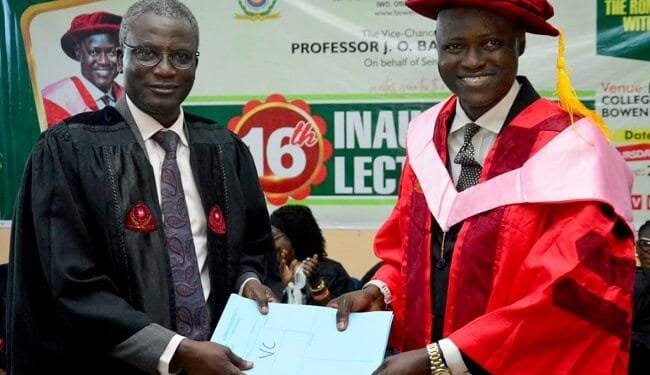Professor Tunde Lawal of College of Agriculture, Engineering and Science, Bowen University, Iwo, Osun State, has warned against the low animal protein intake of Nigerians. He said it was insufficient to boost their wellness, especially in children.
Lawal, a professor of animal science, made the affirmation while delivering Bowen University’s inaugural lecture series recently.
According to him, the dearth of sufficient protein in the country and the financial means to access it has exposed the masses to morbidity, mortality tendencies impaired development and the vulnerable population.
He said: “The romance of an academic with enzymes that all may be fed, that early cessation of breastfeeding, lack of exclusive breastfeeding and inappropriate complementary feeding contributed to malnutrition in infants and young children.”
According to him, the problem of malnutrition in Africa is multifaceted, influenced by various factors, including food insecurity, poverty, inadequate healthcare, as well as poor dietary practices, which he said contribute to nearly half of child deaths in Africa.
Speaking further, Lawal confirmed that though the population of Nigeria is over 200 million, it has sufficient hectares of arable land for agricultural cultivation to produce enough food for local consumption and for importation ventures, adding that a nation that could feed itself is not economically and politically independent yet.
Talking about a way out of the challenges. The don further emphasised an adequate investment in the production of livestock and livestock commodities.
He noted that meat has been a fundamental part of the human diet, stating that meat is an integral part of most meals in Nigeria, hence the reason for its mass production.
He also made a case for the mass production of animal feeds from agro-industrialproducts, stressing that the effective utilisation of by-products only will not reduce waste, and lower feed costs but will also support sustainable livestock production.
He added that agro-industrial by-products represented an opportunity to enhance sustainability in agriculture and industry by turning potential waste into valuable resources that will enhance animal performance.
Also, as it contained his lecture, he described the use of enzymes as very essential for the feed production process. He explained that enzymes make animals grow faster and less vulnerable to diseases and increase performance.
On dairy ventures, Lawal noted that in the business of dairy farming and processing, the Nigerian segment is predicted to be the most fragmented, as all locally produced milk in the country comes from smallholder farmers, with little progress in the areas of cooperative formation of commercial dairy farming and milk production.
wal discouraged the importation of exotic cattle in the country but rather embraced artificial insemination, he emphasised that dairy provides the most important amino acid required for bodybuilding as well as tissue repairs in human beings








